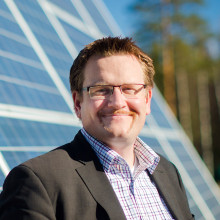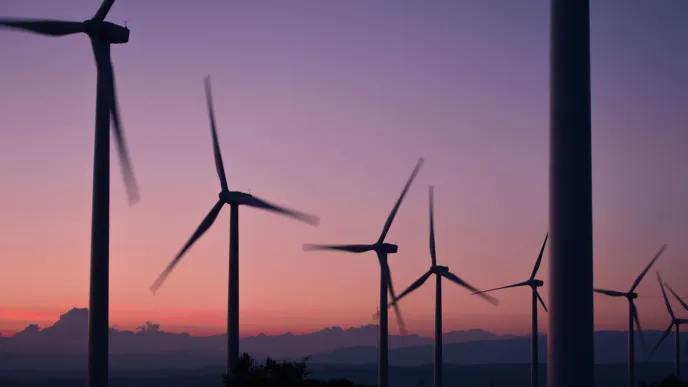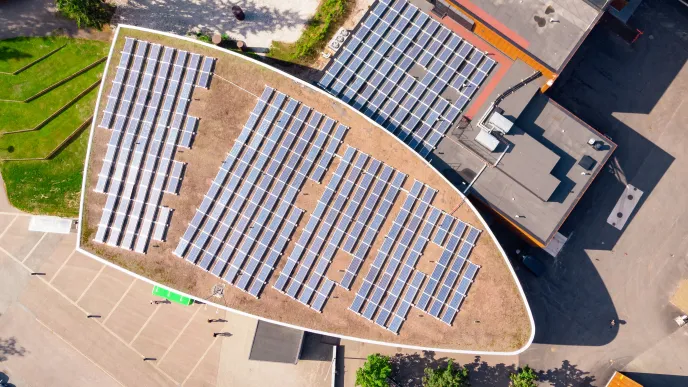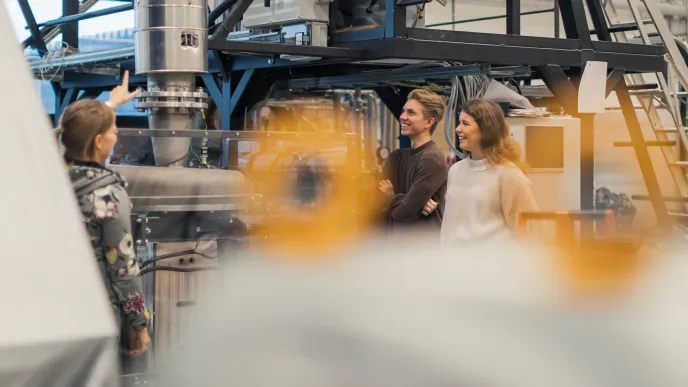An energy system that is 100% based on renewables has emerged to become scientific mainstream. Hundreds of scientific studies have proven that 100% renewable energy systems can be achieved on global, regional, and national levels by or before 2050. The number of published studies has grown by 27% annually since the year 2010 and continues to grow each year.
“A quickly increasing number of researchers conclude that the entire energy system demand can be met based on renewables, and that doing so will actually be cheaper in the long term, while fulfilling sustainability requirements”, professor Christian Breyer from LUT University concludes.
Key pillars of this new energy system are solar and wind energy, energy storage, sector coupling, and electrification of all energy and industry sectors implying power-to-X and hydrogen-to-X solutions, complemented by upcoming carbon dioxide removal to help stabilize the climate. The topical review is entitled “On the History and Future of 100% Renewable Energy Systems Research” and published in IEEE Access.
“According to the United Nations, over 160 firms with $70 trillion in assets are committed to decarbonize the global economy, which means phasing out fossil fuels by 2050. Our research has shown that we have the technologies to implement a global energy supply based entirely on renewable energy,” says Dr. Sven Teske, Associate Professor at the University of Technology Sydney (UTS).
“The science clearly shows that a global 100% renewable energy supply is technically and economically possible. The next step is for our research to be included in the Intergovernmental Panel on Climate Change (IPCC)’s assessment reports, which are currently based on outdated energy scenario research”, Teske continues.

“Strong skepticism” is long gone
Initially, the research of 100% renewable energy systems encountered strong skepticism. Now, leading researchers of the 100% renewable energy systems research community have combined their views. The article reflects the development of the research field, the present status, the past critique, and provides an outlook on future research needs. More than 20 authors from 15 organizations and 9 countries contributed to this joint research.
“Many young people are depressed because they feel climate change cannot be stopped. We want to offer them hope by showing that our world can get all its energy needs from renewables at a price below that of fossil fuels. When we first proposed this, we were ridiculed, but this paper shows our ideas are now scientific mainstream,” says Auke Hoekstra from the Eindhoven University of Technology in the Netherlands.
Major critiques against 100% renewable energy system research centre on energy return on investment (EROI) for renewables, variability and stability of the system, costs, raw material demand, and community disruption. These aspects are directly addressed, and it is shown that they are either a topic of the past, or that solutions exist so that none of these aspects should be regarded as a showstopper.
“Specifically, the often-voiced argument that renewables do not, and cannot possibly, provide a higher energy return on investment than fossil fuels because, at present, fossil fuels are still required for their manufacturing and installation is fundamentally flawed – by the same flawed logic, coal could never have become a viable source of plentiful “net” energy, since it was initially bootstrapped by lower-EROI animal energy (i.e., human muscles and horse-drawn carriages needed to be used to extract and transport it from the mines)”, adds Macro Raugei, from Oxford Brookes University, UK, and Columbia University, New York, USA.
However, a substantial institutional inertia that hampers the adoption of progressive 100% renewable energy system solutions can be noticed for the International Energy Agency and Intergovernmental Panel on Climate Change, according to the researchers of the article. The transition could be faster, leading to a lower cost energy system for higher levels of sustainability, if international institutions would adopt the latest insights from 100% renewable energy systems research.
New research is still needed
100% renewable energy systems research has spurred respective policy targets, which in turn leads to new research in the field. Broad discussion has resulted in various emergent research fields, such as sector coupling and smart energy systems, material criticality, inter-annual resource variations, system reliability and security, as well as negative CO2 emissions for faster tackling the climate emergency.
“The technologies are already there. The substantial evidence presented is already also empirical evidence in several regions and countries. The ability to exploit synergies across energy efficiency, electrification, district heating and electrofuels is certainly proven. Now decision makers have to stop all new investments in fossil fuels and focus on creating renewable energy based smart energy systems.“, says Brian V. Mathiesen, Aalborg University, Denmark.
According to these 15 leading universities, companies, NGOs, and governments need to work together in order to foster the public engagement that is needed to implement distributed sustainable energy systems. Researchers say that local ownership, governance, and market models must be developed to fit with the different context and cultural traditions around the globe.
More information:

Auke Hoekstra
Eindhoven University, Netherlands
a.e.hoekstra@tue.nl, +316 5161 4294
Marco Raugei
Columbia University, New York, USA; Oxford Brookes University, UK
marco.raugei@brookes.ac.uk, +44 7553 811 759
Brian Vad Mathiesen
Aalborg University, Denmark
bvm@plan.aau.dk, +45 99407218
Sven Teske
University of Technology Sydney, Australia
Sven.Teske@uts.edu.au, +61 2 9514 4786








